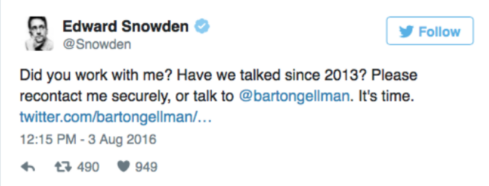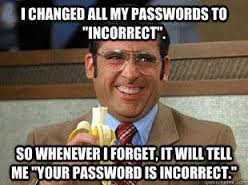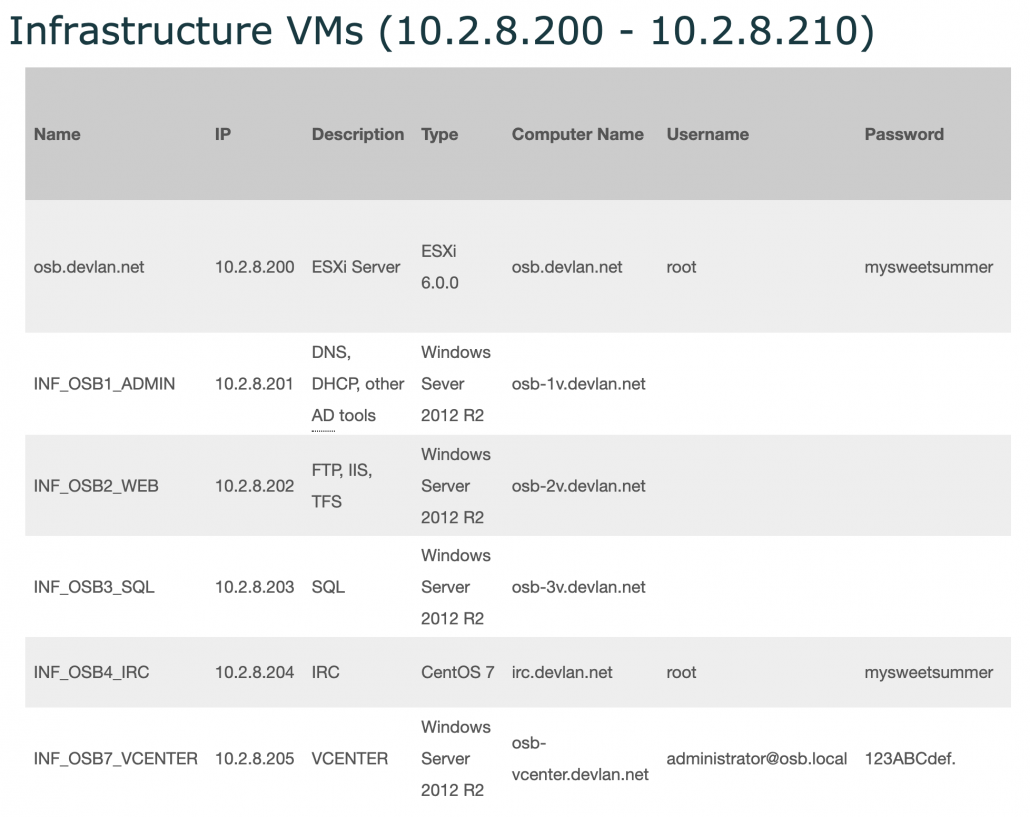Joshua Schulte Attempts to Hack the Court System
Joshua Schulte attempted to complete a hack of the court system yesterday.
I don’t mean that Schulte used computer code to bring down the court systems. His laptop doesn’t connect to the Internet, and so he does not have those tools available. Rather, over the 3.5 years he has been in jail, he has tested the system, figured out which messages can be used to distract adversaries, and which messages have an effect that will lead the system to perform in unexpected ways. He identified vulnerabilities and opportunities — SDNY arrogance, the pandemic and related court delays, Louis DeJoy’s postal system, and even the SAMs imposed on him — and attempted to exploit them.
As a reminder, a jury hung on the most serious charges against Schulte in March 2020. Afterwards, the government moved to retry Schulte quickly, but his defense attorneys said they needed more time, in part because their expert, Steve Bellovin, was for health reasons unwilling to serve as an expert during COVID. Last November, Judge Paul Crotty scheduled a trial to start June 7, 2021, which would have been a week ago Monday. In March, Schulte’s superb attorney, Sabrina Shroff, moved to delay the trial once more, to October, still citing Bellovin’s withdrawal.
Meanwhile, starting in January, Schulte started submitting pro se filings, some filed through Shroff, and some sent directly. The government responded to a motion for habeas corpus (basically, to point out he needs to file suit against the Warden of MCC, not the prosecution), but did not respond to his motion to suppress evidence seized from the MCC jail. When Schulte filed to request direct access to Lexus Nexis, the government responded, in part, by asking Judge Crotty to force Schulte to decide whether he was representing himself, pro se, or, if not, then to solely allow Shroff and her team to make filings on his behalf.
The defendant’s request appears to be an attempt to further his pattern of engaging in inappropriate, quasi-pro se litigation. The Court should not consider the defendant’s instant letter for that reason. “A defendant has a right either to counsel or to proceed pro se, but has no right to ‘hybrid’ representation, in which he is represented by counsel from time to time, but may slip into pro se mode for selected presentations.” United States v. Rivernider, 828 F.3d 91, 108 (2d Cir. 2016). Although the Court has “discretion to hear from a represented defendant personally,” id. at 108 n.5, “the interests of justice will only rarely be served by a defendant’s supplementation of the legal services provided by his . . . counsel,” United States v. Swinton, 400 F. Supp. 805, 806 (S.D.N.Y. 1975). To the extent the defendant has any colorable claims for relief, his attorneys can present them to the Court, and the Court should reject the defendant’s attempts to “slip into pro se mode,” Rivernider, 828 F.3d at 108, whenever it suits him. See, e.g., United States v. Crumble, No. 18 Cr. 32 (ARR), 2018 WL 3112041, at *4 (E.D.N.Y. June 25, 2018) (“As Markus has not elected to represent himself, he does not have a right to make a motion on his own behalf, nor does he have a right to insist that the district court hear his applications. While I have previously exercised my discretion to entertain Markus’s pro se submissions, I will do so no longer. If Markus wishes to file any further motions, he is directed to ask his trial counsel—or appellate counsel— to adopt this motion. I trust that assigned counsel will file any motions that they do not view as frivolous on Markus’s behalf. Any pro se motions made by Markus, however, will be summarily denied.” (cleaned up)).
In any event, even if the Court considers the defendant’s submission, it is without merit. As his letter acknowledges, he has access to legal databases (a fact confirmed by the volume of his recent pro se filings), but additionally he demands special access to “filings, briefs, modern search, and the ability to print.” The defendant’s claims about the purported deficiencies of the databases to which he does in fact have access do not support such demands or establish a basis for relief. “[A]n inmate cannot establish relevant actual injury simply by establishing that his prison’s law library or legal assistance program is subpar in some theoretical sense.” Lewis v. Casey, 518 U.S. 343, 351 (1996). The defendant identifies no reason he should be afforded special access beyond that which the facility provides in the normal course, and at bottom, he is represented by counsel who have the ability to make well-researched and thoroughly prepared legal claims on his behalf.
Crotty denied Schulte’s request for Lexus Nexis, but didn’t address the pro se request.
Meanwhile, two of the three prosecutors on the team, Matthew LaRoche and Sidhardha Kamaraju, withdrew from the case, both because they’ve left government. LaRoche was involved in a prosecution that collapsed because the government committed a Brady violation, but Kamaraju was not. Kamaraju, however, probably has the most computer expertise of the original three.
Yesterday there was a remarkable status hearing. Crotty started by asking the remaining prosecutor, David Denton, when replacement prosecutors will file an appearance. Imminently, Denton said, though it sounded like he didn’t believe that.
Crotty asked whether Shroff has found an expert. Curiously, she explained that Bellovin still can’t do it, even with the waning risk of COVID, because of his schedule at Columbia University. Crotty noted that it is her responsibility to find an expert (she had said in a November status conference that it would amount to ineffective assistance not to have one).
But the real stunner came at the end, when Shroff said that Schulte wanted her to tell the court that he had told the government back in November that he was proceeding pro se. Denton responded that this was the first he had heard of such a thing, and Shroff responded that he was incorrect; Schulte had informed the government in November.
The hearing ended with a commitment to brief whether Schulte can proceed pro se.
It is almost without exception an insanely bad idea for a defendant to represent themselves, and this is probably not that exception. Still, there are advantages that Schulte would get by representing himself. He’s brilliant, and clearly has been studying the law in the 3.5 years he has been in prison (though he has made multiple errors of process and judgment in his own filings). He has repeatedly raised the Sixth Amendment problems with Special Administrative Measures, notably describing how delays in receiving his mail make it impossible for him to respond to legal developments in timely fashion. So I imagine he’d prepare a Sixth Amendment challenge to everything going forward. He’d be able to demand access to the image of the server he is alleged to have hacked himself. By proceeding pro se, Schulte could continue to post inflammatory claims to the docket for sympathetic readers to magnify, as happened with a filing he submitted earlier this year. And after the government has made clear it will reverse its disastrous strategy from the first trial of making the trial all about Schulte’s conflicts with the CIA, by questioning witnesses himself, Schulte would be able to make personality conflicts central again, even against the government’s wishes. Plus, by not replacing Bellovin, Schulte would serve as expert himself. In that role, Schulte would present the false counter story he has been telling since he was jailed, but in a way that the government couldn’t cross-examine him. So it would probably be insanely detrimental, but less so than for most defendants that try it. It certainly would provide a way to mount the defense that Schulte clearly wants to pursue.
But I think that’s just Schulte’s fall-back plan.
I think his current plan is to argue that, because anything his attorneys did in his name after he purportedly informed prosecutors he was proceeding pro se would be a legal nullity, then two things have happened since that allegedly occurred that will permit him to demand immediate release. First, if his attorneys’ agreements to exclude time from the Speedy Trial clock were not valid, then it would mean the government has run out of time to prosecute Schulte. Additionally, if a request that Shroff made in March to reschedule the trial was not valid, then the trial would have still been scheduled for last week. I suspect Schulte will try to argue that the government forgot to hold their trial and so must be released.
Mind you, there’s no evidence in the docket that Schulte informed prosecutors, much less the court, that he was proceeding pro se. There’s a filing he made in April 2020 that claimed he had no lawyers and made requests as if he was proceeding pro se, one that everyone ignored. But according to Shroff, that’s not the notice; the notice took place in November. Still, given how Schulte has carefully tested how the mail system works with SAMs and COVID, I don’t rule out him sending a letter directly to prosecutors.
The other problem with his claim to be proceeding pro se is that in a May filing, Schulte referred to the October trial (meaning, he recognizes the validity of both that request and Shroff’s exclusion of time under the Speedy Trial Act) and complained that his attorney-client mail was being opened. If he were proceeding pro se without Crotty formally appointing Shroff as standby counsel, their communications would have no privilege. So he has said two things in a pro se filing that are inconsistent with really proceeding pro se.
Certainly, Shroff has said things — in multiple venues — that indicate she believed she remained Schulte’s lawyer.
Given that Schulte claims everything his legal team has done since November was done without his sanction, though, the government would seem to have cause to ask Crotty to assign entirely different lawyers to serve as Schulte’s stand-by counsel, if indeed he does proceed pro se going forward. Which would make his plan for the actual trial, if it ever happens, untenable.
To be sure, I’m not saying this is going to work. But the government — what’s left of the prosecution team, anyway — had better understand that Schulte has been treating the court system with the same adversarial approach as he allegedly did the CIA’s servers. Schulte is claiming to have entered a command into his prosecution back in November that hacked the system, effectively changed the effect of everything that has happened since. Just trusting that such a possibility cannot happen under the legal system is probably a bad idea given where the CIA’s trust that Schulte wouldn’t hack the system turned out.
Update: Via InnerCity Press, there’s the transcript of the hearing.
April 12, 2020: Schulte claims he has no attorneys, claims only a few months remain on Speedy Trial
May 31, 2020: Shroff asks for a week extension to respond to government scheduling motion
June 8, 2020: Schroff requests a status conference for August or September 2020, acting as if Schulte’s request did not exist
June 15, 2020: Shroff initiates White Plains grand jury challenge
June 19, 2020: SDNY extends Speedy Trial to July 1, 2020
July 16, 2020: Shroff informs Judge Crotty Schulte will not reply to Rule 29 motion
July 27, 2020: Shroff asks for extension on grand jury challenge
July 28, 2020: Shroff asks for ESXi server (basically a repeat of Schulte’s April request)
July 30, 2020: Shroff asks for two week delay on status hearing citing (in part) Steve Bellovin’s withdrawal
August 14, 2020: Shroff asks for two week extension on reply to request for ESXi server
September 15, 2020: Shroff reply on ESXi laptop
September 16, 2020: SDNY proposes schedule, with January 2021 trial date
September 21, 2020: SDNY responds to Bellovin submission of ex parte declaration
October 14, 2020: SDNY asks for 30 day exclusion
October 30, 2020: Shroff requests Schulte appear remotely
November 4, 2020: Status conference, trial set for June 7, 2021, with time excluded; Shroff maintains it would be ineffective counsel to go to trial without expert
THE COURT: Are you entitled to an expert?
MS. SHROFF: In a case like this, yes. I’m quite certain I’m entitled to an expert. I think it would be clear error and ineffective assistance of counsel to try this case without an expert, without a doubt.
November 16, 2020: Shroff-submitted motion to dismiss on White Plains grand jury
November 19, 2020: Shroff submits request for VTC meeting with Schulte’s family
January 1, 2021: Schulte motion to suppress MCC evidence (docketed February 24)
January 7, 2021: Shroff requests 2 week extension on White Plains grand jury reply
January 19, 2021: Shroff files Schulte pro se motion for writ of habeas corpus regarding SAMs, dated December 25, 2020
January 22, 2021: Shroff requests two week extension on January 21 deadline for reply on White Plains grand jury reply
January 22, 2021: Shroff requests funds for new laptop for Schulte
January 27, 2021: Civil Division AUSA asks Crotty to dismiss motion for writ so it can be refiled naming Warden as defendant
February 22, 2021: Shroff submits reply on White Plains grand jury challenge
February 24, 2021: Schulte files motion to reconsider decision on habeas (docketed March 4)
March 19, 2021: Schulte calls on Crotty to decide his motion to suppress on the merits, given government non-response (docketed April 5)
March 22, 2021: Shroff moves, with consent of Schulte, to reschedule trial to last quarter of 2021
March 24, 2021: Crotty denies motion to dismiss; Crotty reschedules trial for October 25, excludes time
April 12, 2021: Schulte asks for Lexus Nexis (docketed April 29)
May 5, 2021: Schulte complains about mail delays (docketed May 19); among other things it reflects an October trial date and references attorney-client mail
May 7, 2021: Matthew LaRoche withdraws
May 11, 2021: SDNY submits opposition to Lexus Nexis request, including request for order that Schulte not submit pro se
June 3, 2021: Sidhardha Kamaraju withdraws
June 7, 2021: Date of trial scheduled in November 2020
June 15, 2021: Status hearing at which Schulte claims to have been representing himself pro se since November






